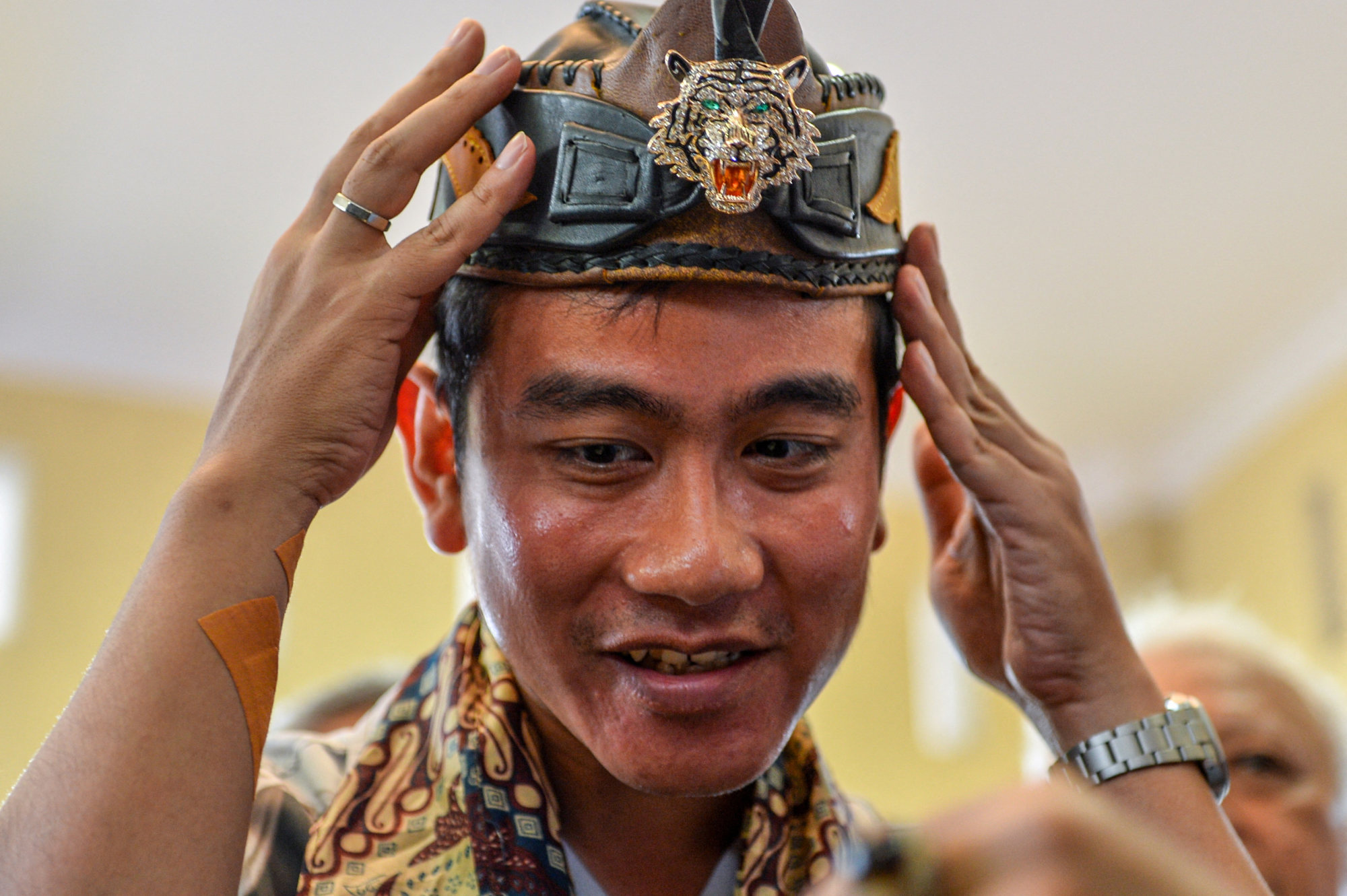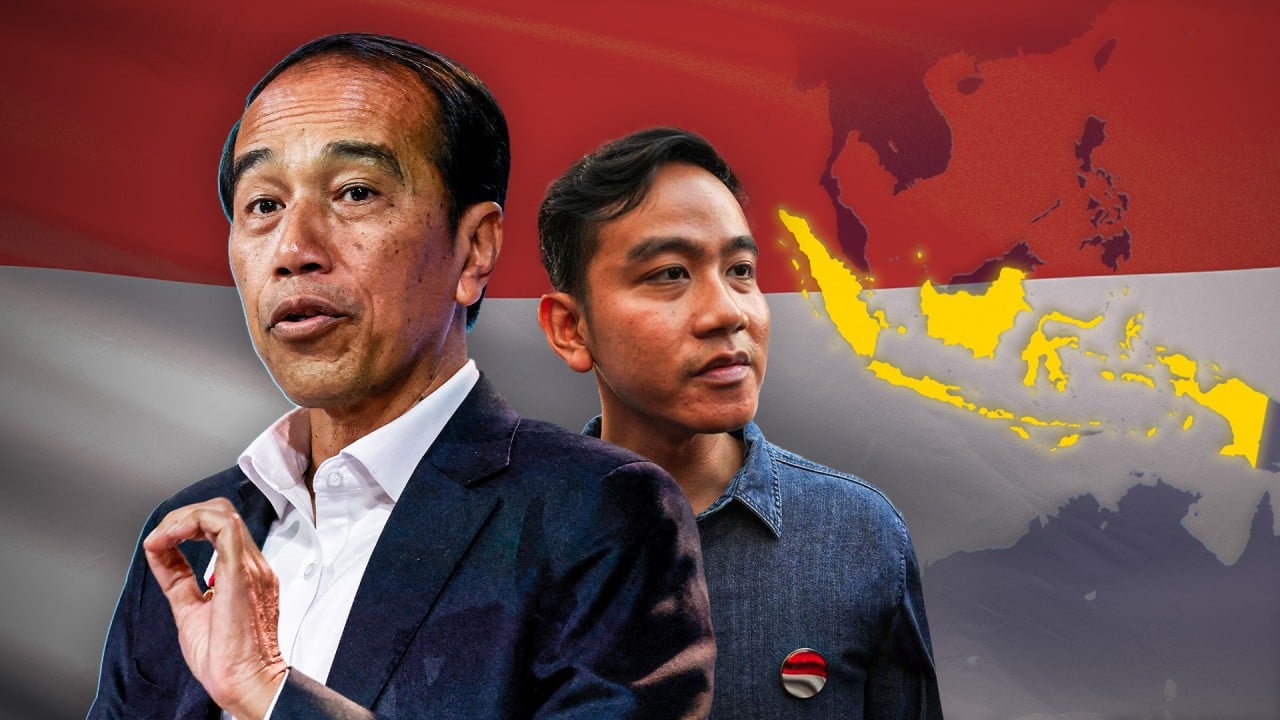Indonesia election 2024: students protest Jokowi’s perceived lack of neutrality, but will movement impact voters?
Indonesian President Joko Widodo has been a target of mounting criticisms from academics and students for his perceived lack of neutrality in the coming election, but observers say that the movement will do little to change the course of the election on February 14.
On Friday, dozens of students at the University of Trisakti in Jakarta, whose four students were fatally gunned down by armed forces during the pro-democracy protest in the late 1990s, joined the movement by issuing a declaration condemning the regression of democracy in Indonesia under Widodo. The students, alumni, and lecturers had to assemble at a bus stop directly in front of the campus because they were prohibited from gathering within the campus grounds during a public holiday, the students said.
“In our opinion, the 2024 election will be the first election that is not fair, not free, and not democratic in the democratic era. There is too much non-neutrality of state officials and apparatus, including misuse of facilities and other state resources for the interests of a certain candidate,” the declaration, titled Trisakti’s Declaration Against Tyranny, says.
“We oppose various violations of the ethics … shown by state administrators, especially by the Constitutional Court and the President, as well as officials from the [presidential] palace, ministries and institutions, up to the election organisers.”
Jokowi under renewed fire for saying presidents ‘can take sides’ in election
Jokowi under renewed fire for saying presidents ‘can take sides’ in election
Widodo has been accused of meddling in the February 14 election, in which Prabowo Subianto named Widodo’s son, Gibran Rakabuming Raka, as his running mate. Gibran’s path to candidacy has been controversial, sparked by an October 16 ruling by the Constitutional Court, led by Gibran’s uncle Anwar Usman, that stated anyone under 40 is eligible to run for president if elected at a regional level. Gibran, who is 36, is the mayor of Surakarta.
The court’s ethical board has ruled the decision as unethical, and Anwar has been demoted from his position as chief justice since.
The students urged Widodo to uphold the supremacy of law and human rights, eradicate corruption, and “return to the true path of democracy,” resembling demands previously declared by other universities across the nation, such as Widodo’s alma mater, Gadjah Mada University.
Trisakti became famous in Indonesia after four of its students were killed during a protest on May 12, 1998, which sparked a wider revolution that led to the fall of dictator Suharto nine days later, and eventually, the introduction of democracy in the country. This tumultuous period is commonly known as “reformasi”.
“Our democracy was born in exchange for the lives of four Trisakti students on May 12, 1998, and other lives before and after,” Vladima Insan Mardika, student president at Trisakti, told This Week in Asia on Friday.
“This should inspire all forms of academic community, student groups, and other people who are still confused about what to do, to act now to defend our democracy”.
Usman Hamid, a Trisakti alumni and student activist in 1998, joined Friday’s declaration at his old campus after he heard “a calling”.
“I have more encouragement to speak out because of the political actions of the authorities, which are contrary to the principles of democracy and the principles of Reformasi,” he said.
“Our law states that state administration must be carried out with anti-corruption, collusion, and nepotism principles. Today’s government, the president in particular, practices the opposite,” Usman, also a director at Amnesty International Indonesia, said.

In his speech, Usman urged voters not to vote for Prabowo, whom he referred to as a “human rights criminal”.
As a special forces commander in 1998, Prabowo led a team that has been accused of kidnapping more than two dozen pro-democracy activists during the twilight of Suharto’s 32-year rule. Some protesters returned home, others tragically died, while others are still missing to this day. Prabowo had said in a presidential debate against Widodo in 2014 that he was only “following an order.” No one has been brought to trial over the killing of Trisakti students and the activists’ kidnapping.
Broader protest?
The latest national survey by Jakarta-based pollster Indikator released on Friday shows that Prabowo-Gibran pair would be voted by 51.8 per cent of 1,200 respondents, well ahead of rivals Anies Baswedan and Ganjar Pranowo, who earned 24.1 per cent and 19.6 per cent of the votes, respectively.
Kevin O’Rourke, author of Indonesia-focused newsletter Reformasi Weekly, which analyses Indonesian politics and policies, said that the current wave of protests from academics and pro-democracy activists is unlikely to rein in Prabowo’s lead in next week’s election or have much impact on voters.
“As for President Widodo, he has demonstrated a willingness to defy warnings from academia, as he did in October when more than 200 signatories called on him to refrain from pursuing the nomination of his son for vice-president,” O’Rourke wrote on the newsletter’s Friday edition.
Can Indonesia’s Ganjar force a run-off as bid for ‘total victory’ dries up?
Can Indonesia’s Ganjar force a run-off as bid for ‘total victory’ dries up?
“Nonetheless, the stances of the numerous academics and student groups still have meaning: it may be a harbinger of broader protest activity that could occur in future if the administration makes further transgressions against democratic norms.”
Asked if they would take to the streets to protest the current administration, Vladima of Trisakti said “we will see.”
Nicky Fahrizal, a political analyst with Centre for Strategic and International Studies (CSIS) Indonesia, said that the academics’ declaration is unlikely to dent Prabowo’s electability as the campuses specifically target Widodo in their letters.
“These petitions are issued to warn Jokowi, not Prabowo, as the people already understand that Jokowi’s political behaviour is no longer neutral, and in fact, leaning more towards [promoting] Prabowo. It is likely that there will be an impact on Jokowi’s popularity,” Fahrizal said, referring to Widodo’s popular nickname.



 Offers free spin
Offers free spin